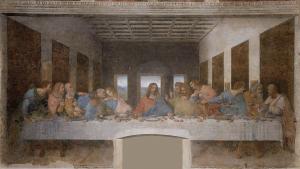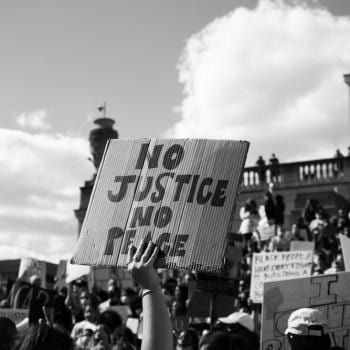
As we approach the celebration of Easter, it’s worthwhile to pause dive a little deeper into the significant events that happened the night before Jesus’ death, in what’s commonly known as the Last Supper. What Jesus told his disciples was so audacious and so scandalous that they should have gotten up and walked out of the meal.
Then came the day of Unleavened Bread on which the Passover lamb had to be sacrificed. When the hour came, Jesus and his apostles reclined at the table. And he said to them, “I have eagerly desired to eat this Passover with you before I suffer. For I tell you, I will not eat it again until it finds fulfillment in the kingdom of God.” Luke 22:7, 14-16
Jesus eagerly desired to share Passover with his disciples before his death, not because it would be a fond memory together, but because he was about to change everything. He was about to introduce something brand new.
And Jesus took bread, gave thanks and broke it, and gave it to them, saying, “This is my body given for you; do this in remembrance of me.” Luke 22:19
When he took the bread and said “This is . . .”, they should have cut him off and said, “Jesus, we know what this bread represents.” The bread represented the unleavened bread the Israelites took with them when they escaped slavery in Egypt. These disciples had been to Sunday School. They knew the stories. The script hadn’t changed in 1500 years.
And now Jesus has the audacity to say this bread represents him? There must have been jaws on the floor when Jesus said this. But it gets weirder. Jesus next says, “Do this in remembrance of me.” For 1500 years, the Jews would celebrate Passover in celebration of the deliverance of Israel from slavery in Egypt. And now Jesus has the audacity to say that this should be done in remembrance of him?
As good Jews, every one of those disciples should have gotten up and left the room at that point. As orthodox Jews, what Jesus was saying was pure heresy. It would be like this: let’s say this next December I get up in front of the church I pastor and say, “I know every December we celebrate Christmas as a way to celebrate Jesus’ birth, but this year Christmas is going to celebrate my birth. All December we’re going to celebrate me and my birth, we’re going to sing songs about me, and on Josh-mas Eve we’re going to give gifts to each other in my honor.”
If I got up and said that, every church member should get up and leave the church because I would be a heretic. That’s not unlike what Jesus was saying to these orthodox Jewish disciples. Jesus was introducing something entirely brand new. But he wasn’t done yet.
In the same way, after the supper he took the cup, saying, “This cup is the new covenant in my blood, which is poured out for you. Luke 22:20
Jesus lets that first statement simmer for a while and after dinner the other shoe drops. He says, “This cup . . .” again, to which the disciples should have stopped him and said, “Jesus, we know what the cup represents, we’ve been celebrating it for 1500 years now, let’s not change the script.”
But before they could, Jesus finishes his statement and says, “This cup is the new covenant.” Now, we don’t really have context for what the word covenant meant to first century Jews, but it meant everything. Covenant was the agreement that God made with the Israelites on Mt Sinai when God gave the 10 Commandments. The covenant God made with Israel on Mt. Sinai had guided their relationship with God and the world for the last 1500 years, and now Jesus is saying that something brand new is coming.
Now, the way you would ratify an ancient covenant would be through the spilling of blood. You would kill an animal and slice it in half, and then the parties making the covenant would walk through the two halves of the animal. By walking through the two halves of the animal they were saying, “May my fate be like this poor dead animal if I break this covenant.”
The blood of animals were used to seal a covenant. But an animal wouldn’t spill its blood for this covenant. Jesus said this covenant would be sealed with his own blood. All the way back at the beginning of his ministry, when John the Baptist baptized Jesus at the Jordan River, John gave the crowds a preview of what Jesus was coming to do.
The next day John saw Jesus coming toward him and said, “Look, the Lamb of God, who takes away the sin of the world!” John 1:29
So, Jesus just dropped a bombshell in front of the disciples: after 1500 years, the Passover would now be celebrated because of him, and oh by the way, God was establishing a new covenant that Jesus would secure by his own blood, and oh by the way, this covenant wouldn’t just be for Israel. This covenant would be for the entire world.












